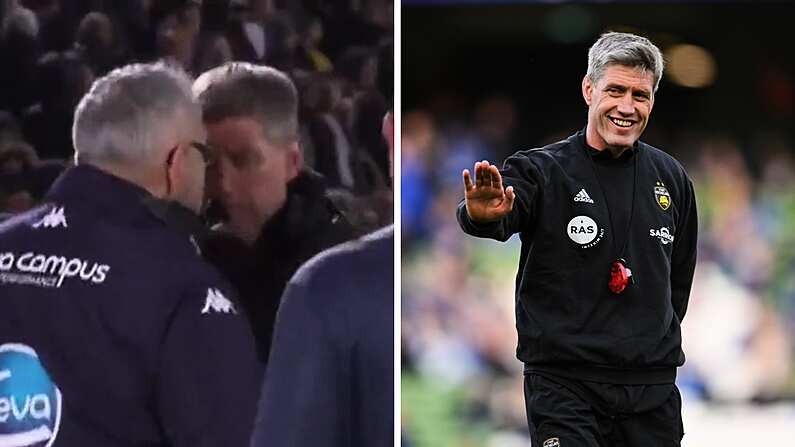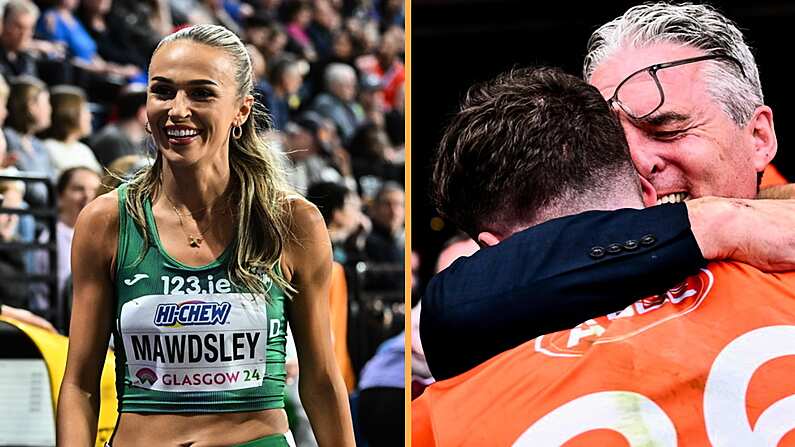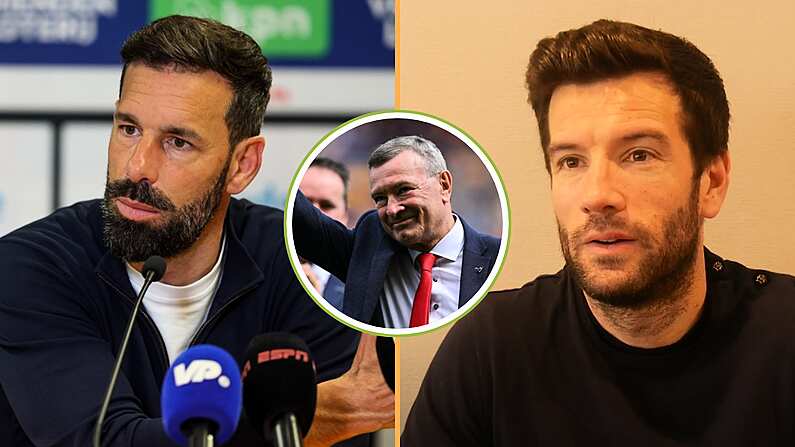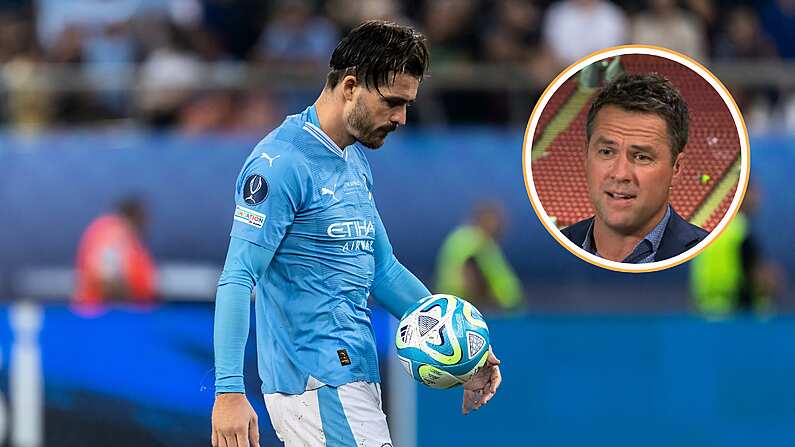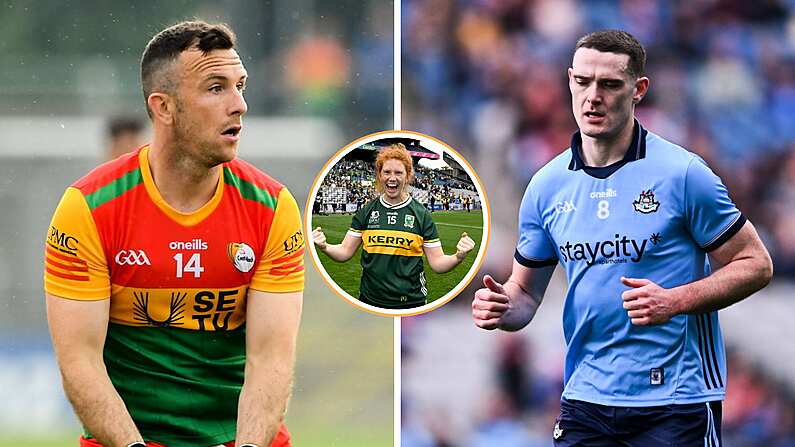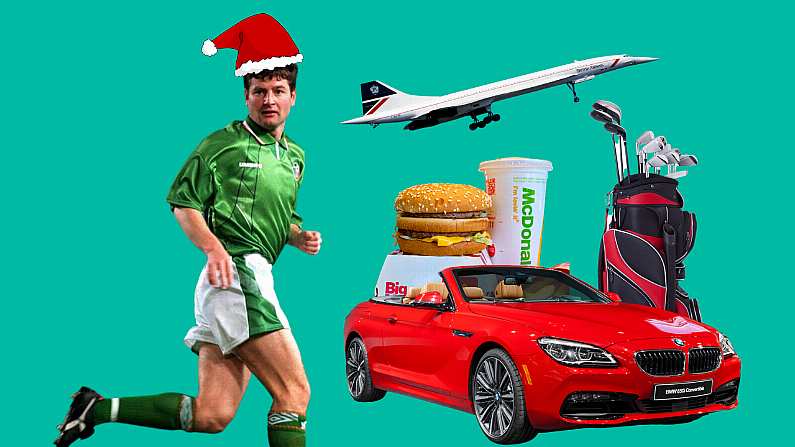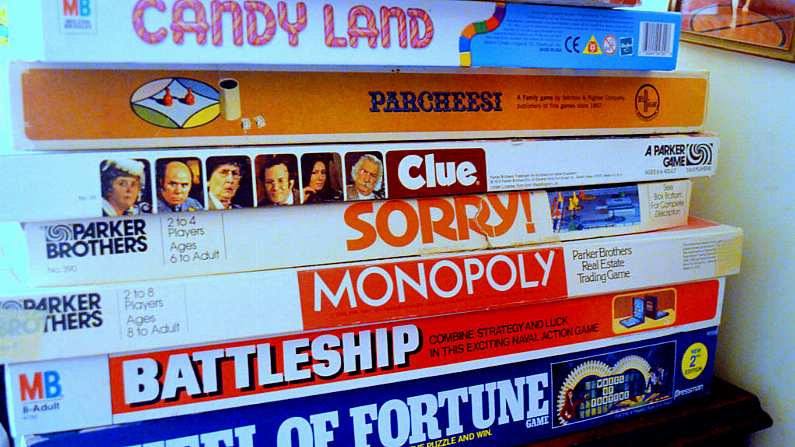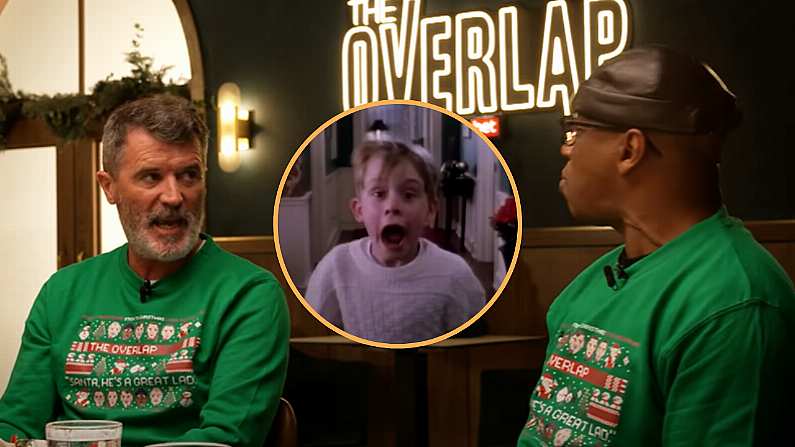We've already reckoned with New Zealand, and now, with Australia coming down the line, we look back at our famous history with the Wallabies.
You might be surprised to learn that Ireland had a winning head-to-head record against the Australians by the end of the 70s. Australia was always rugby league country. Alas, they quickly became good at league's stuffier, more well-to-do cousin beginning in the 1980s and Ireland's winning record vanished.
It was blown to oblivion in fact. We've only belatedly begun to regain some of the lost ground. Here's a tour through the rivalry's most intriguing back-stories.
"YOU WERE STANDING THERE LIKE A PRICK IN THE WRONG PLACE" (1979)
When trying to recall his first call-up to the Ireland team in 1962, Willie John McBride said "I think the previous fella died or something."
This, naturally, is a variation on the old joke about Irish team selection in the amateur era. Namely, that the only thing harder than getting selected for the Irish team was being dropped from the Irish team.
Indeed, at one of Will Carling's after-dinner dos, the videos of which proliferate on youtube, a baffled Willie John remembered how "they kept changing the English team."
One can guess at the extent of the shock then which reverberated around Irish rugby when the star out-half was dropped on the eve of the first test against Australia in 1979.
Not just any out-half either, but Tony Ward, the winner of the European Player of the Year award in 1978 and 1979, the regular 10 during the previous couple of Five Nations campaigns, the out-half on the day Munster beat the All-Blacks, and the man who, in the previous game down under, scored a new Irish record of 19 points. He won three Man of the Match awards from the four Five Nations games that spring.
Wardy was dropped in favour of Ollie Campbell, who had last played for Ireland in 1976. Even rugby fans born after 1979 heard about this selection dilemma ad nauseam.
His friend and Munster teammate, and future Irish manager, Pa Whelan told him to brace himself for bad news. Back then, team selection wasn't the preserve of a dictator coach. In Ireland, the team was picked by a committee of three consisting of the coach, the manager, and the team captain (who presumably never thought about dropping himself without very good cause).
On that day, the men who made the call - and it was 3-0 in favour of Campbell - were Noel 'Noisy' Murphy (coach), Jack Coffey (manager) and Fergus Slattery (captain and flanker).
Why was the call made?
Tom English's book 'No Borders: Playing Rugby For Ireland' gives a fair few hints. It reveals that there was some dissatisfaction, within the Leinster-based forwards in particular, at Ward's style of play and game management.
Willie Duggan: You can't just follow the ball as a back row forward, you have to take the short-cut. You need to know where it's going to go and then you go there. Sometimes with Wardy you looked around and he'd gone the other fucking way. You were standing there like a prick in the wrong place. He was a very good player but with Ollie you knew where you were.
Phil Orr: Sorry, but picking Ollie made perfect sense to me.
Fergus Slattery: The problem with Tony's game was a lack of pace and it wasn't apparent to the intelligentsia in the media. He didn't have the pace to do the things he tried to do. He was a great dancer, small and agile, but there was far more structure to Ollie's game. Wardy had a tendency to crab across the pitch rather than go forward and that put more pressure on the outside. It was only a bombshell to the people who didn't know what they were saying.
After Warren Gatland dropped Brian O'Driscoll for the Lions third test in 2013, Ward, who could justly be considered something of an expert in the matter of shock omissions, admitted in his Irish Independent column that he still felt resentful towards both Murphy and Slattery.
To this day I resent Murphy and Fergus Slattery, coach and captain respectively, for the lack of sensitivity back then. Time heals and now it matters not a whit. I get on fine with both, but is either on my Christmas card list? What do you think?
In the end the call could be said to have paid off, as Ireland famously won both tests against Australia and Campbell at out-half was a star man. Campbell is now regarded as one of the greatest Ireland out-halves of all time. He was the most influential figure in Ireland's 1982 Triple Crown success.
They wouldn't beat the Aussies for another 23 years, and haven't beaten them in Australia since (they did beat them in New Zealand in the World Cup in 2011).
"WE WON THE SECOND HALF" (1987)
Great quiz question. Name a player who has scored a try both for and against Ireland. The answer is Brian Smith, the Australian-born future England attack coach who abruptly quit Ireland in the summer of 1991 to head back to play rugby league in Australia.
Smith came on as a replacement scrum half for the injured Nick Farr Jones in the Rugby World Cup quarter-final against Ireland in Sydney.
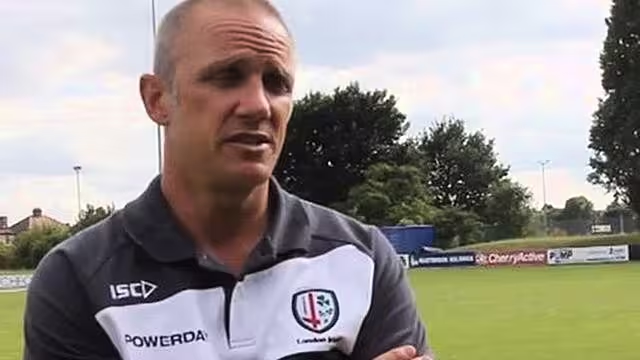
Yes, unlike in 1999 or 2007, Ireland reached the last eight of the inaugural World Cup, though this was a modest enough achievement considering that they only had Wales, Canada, and Tonga in their pool, and they lost to Wales. The pool phase is best remembered for Ireland's surrogate national anthem before the Wales game. Ireland had never stood for an anthem at away games before that but witnessing all the other nations clasping their jerseys and belting out their anthems prompted them to decide that they needed to use something.
Unfortunately, it was incredibly difficult to find a rousing anthem in Irish life that doesn't lean one way or the other on the national question.
Phil Orr had an old James Last recording of the Rose of Tralee in his bag and so that was used. It was dubbed "a stupid compromise" by Donal Lenihan. After the embarrassing debacle, the anthem was swiftly dropped and the job of finding a more permanent arrangement was put off for a while. It was another eight years before Phil Coulter scribbled down the words of 'Ireland's Call' while sitting in the offices of Slattery PR in Donnybrook.
People think now that 'Ireland's Call' winds people up but at least it wasn't the 'Rose of Tralee'. Lenihan wrote in his autobiography that he was hassled in a bar in Mitchelstown after a Cork-Tipperary Munster championship match that summer. A few lads across the bar started getting antsy and aggressively and sarcastically demanded he start singing 'The Rose of Tralee'. It seemed certain that there were going to be digs thrown but, according to Lenihan, the situation was defused by Teddy McCarthy and Dr. Con Murphy who were both in the bar.
The Aussies were one of the favourites for the World Cup and ran roughshod over Ireland in the first half. At half-time, the score was 22-0 and a hammering of historic proportions was on the cards. Matt Burke ran in two tries while the future Ireland out-half Smith went over for the second.
However, a late drive for respectability produced tries from Hugo MacNeill and Michael Kiernan and Ireland went down on the comparatively respectable scoreline of 33-15.
Mick Doyle, who suffered a heart-attack while attempting to train with the team prior to the Wales game, was eager to claim a moral victory after a tumultuous few weeks. Ireland had "won the second half", he excitedly pointed out to the national media.
The Australians would choke in the semi-final against France, losing courtesy of a famous late try from Serge Blanco. Two years later, while playing for Oxford University, Smith received a call from the new Irish coach, Ulster's Jimmy Davidson.
I was aware of his qualifications and was friendly with Alan Jones (the Australian coach). I called Brian before the Varsity match to check out how he'd feel about playing for Ireland.
I still have the audio tape of the conversation. I told him I didn't want any carpetbaggers. He was an outstanding player of whom I couldn't speak highly enough. He was a superb athlete, great ball player with vision and a fine understanding of the game that was more advanced that his peers'. He was professional in his attitude and commitment long before the game embraced professionalism.
The Irish rugby fraternity were less tolerant towards granny rulers than their football cousins and Smith, despite his silken skills, was never entirely popular with the supporters. After establishing himself as our primary out-half in the 1990 and 1991 Five Nations, he upped sticks and left in advance of the 1991 Rugby World Cup, returning home to play for the Balmain Tigers in the NRL.
The 1987 World Cup campaign has been well treated before, especially in this riotously entertaining article by Neil Francis, which features Franno puking on a dog because he was forced to eat the hotel food, the entire squad stealing out in the middle of the night to wolf down KFC because of the same hotel food, and an account of an early morning pool session "which ended when I pocketed the eight pool in the best of nine frames with an Irish supporter in the Brizzy suburbs."
And this passage of an Irish team's first encounter with the Webb Ellis trophy itself.
While we were waiting for the rest of the teams to arrive I went over to the main table lifted the Webb Ellis trophy off its plinth and promptly knocked the lid off. It would the closest I'd ever get to it. Philip Matthews came over and lifted it back just as the All-Blacks walked in. Silence descended. Wayne Shelford came over to us. We felt like a 12 year old kid who had just been caught playing with his 22 year old brother's Fender Stratocaster.
"YOU CAN TELL YOUR FRIENDS ON THE UNION THAT THERE WON'T BE ANY IRELAND TEAM RUNNING OUT ON SUNDAY" (1991)
Everyone thinks the Cork hurlers led the way in the field of players' strikes but it could so easily have been the Irish rugby team.
Des Fitzgerald and Brendan Mullin and Philip Matthews should have pride of place alongside Dessie Farrell and Donal Óg Cusack (and Pierre Van Hooijdonk) in the striking sportsman Hall of Fame.
Along with the Simon Geoghegan inspired win in Twickenham in 1994, the '91 quarter-final against Australia is Ireland's most celebrated display of the decade. And the Irish team almost didn't turn up at all.
As Brendan Fanning detailed in 'From there to here', prop Des Fitzgerald (father of Luke) phoned up IRFU grandee and former Irish coach Roly Meates four days before the match.
"You can tell your friends on the union that there won't be any Ireland team running out on Sunday against Australia", he told him.
This was deep in the so-called 'shamateurism' era when players from other nations were being effectively paid for their services. David Campese boasted of becoming a millionaire from playing what was supposed to be an amateur sport.
Neil Francis played a season for Manly, under Bob Dwyer and alongside the ageing Clive Woodward, in the Australian league in 1987-88. As he observed in an anecdote about his time there, told on Matt Cooper's 'Area 22' TV programme, "effectively they paid me."
No union was more committed to the amateur ideal than the IRFU. They had even opposed the establishment of the World Cups on the basis that it might somehow hasten the arrival of professionalism.
The players' grievances centred around the Participation Agreement, a lengthy document which gave Rugby World Cup free reign to do what they wished with the images from the event, and the Commercial Scheme, which outlined the criteria which had to be met by players wishing to financially benefit from their participation. On the former, the IRFU wanted the sign the document without even giving the players sight of what they were agreeing to, and, on the latter, the IRFU kept on finding ways of telling the players that they hadn't met the criteria.
The dispute had been dragging on in the background for the duration of the tournament but it properly blew up the week of the Australia game.
On the Thursday before the match, the IRFU eventually caved into the players demands on the relevant issues after an 'eleventh hour' meeting in the players base at Finnstown House.
What followed was one of Ireland's most stirring displays, the moral victory to top all moral victories against the leading rugby team in the world.
Ireland had a curious year in 1991. They won no match against significant opposition, beating only Zimbabwe and Japan en route to the World Cup quarter-final. They lost three from four in the Five Nations and drew the other match in Cardiff. A rare non-victory in the Welsh capital in those years. They also lost two tests against Namibia in the summer.
And yet, there was general agreement that, with the exception of the Namibia games, Ireland played plenty of good attacking rugby in 1991. London-based players Simon Geoghegan and Jim Staples had both come onto the scene. They weren't beaten out the gate in any game and had Grand Slam champs England in trouble until the final 10 in Lansdowne Road.
Campo was at the peak of powers and scampered in for two tries either side of half-time. Ralph Keys's kicking kept Ireland well in touch and with five minutes remaining, they only trailed 15-12.
Then came the famous try, which has been replayed thousands of time since. It was standard for a try in the corner in Lansdowne Road to be followed by a pitch invasion in those days, but rarely has one deserved one more than this.
What a roar!
Unfortunately, while RTE were still showing replays of the game, scrum half Rob Saunders failed to find touch with his kick and Australia built another attack. Through the brilliance of Lynagh and Campese they worked the winning score.
THERE'S NO RAIN IN AUSTRALIA (2002)
Though they came close a few times (see above), Ireland didn't beat a Tri-Nations team in the whole of the 80s or 90s.
Eddie O'Sullivan and Warren Gatland had a major disagreement over the failure to appoint a specialised defence coach during the latter's reign.
Still, Gatland presumably expected he'd done enough to win a contract extension after a positive 2001 season. But Ireland's late collapse from a winning position against New Zealand in 2001 was pinned on the coach's refusal to bring in help on defence.
It turned Keith Wood against the boss and prompted the IRFU to make their deeply controversial call. Watching Gatland subsequently win Heineken Cups with Wasps and Grand Slams with Wales, many Irish supporters were inclined to regret this decision and it's often been derided as yet another cock-up from Irish officialdom.
But then Eddie O'Sullivan has received grotesquely unfair press in modern times, his reign judged entirely on a disastrous final year in charge.
His win-loss ratio was the best of any Ireland coach at the time of his departure.
As soon as he was appointed, he drafted in Englishman Mike Ford as the specialised defence coach. At the end of the year, Ireland beat Australia 18-9 in sopping wet conditions in Lansdowne Road.
The gnarled Aussie outfit, while thought to be on the wane, were still world champions and had beaten New Zealand five years in a row in the Bledisloe Cup. By any standards, a landmark win.
"THEY MIGHT AS WELL CHEER THEM ON IN THE WARM-UP" (2011)
For whatever reason, Ireland bump into Australia a hell of a lot in World Cups. The guys plucking the balls from the hat love matching them up with us. We've yet to collide with South Africa or England at all in RWC and we've only played New Zealand once.
But Australia, we've met on no fewer than five occasions. 1995, 2007 and 2015 are the only World Cups in which we haven't wound up playing the Aussies.
So far, there's been two one point defeats (1991 and 2003) and a couple of relatively one-sided victories for the Australians (1987 and 1999).
The lie of the land was unusually unpromising ahead of the 2011 game.
Irish fans still shuddered at the thought of the nervous breakdown that gripped the team at the 2007 World Cup and there were worrying signs that the same malaise was descending in time for the 2011 tournament. The warm-up games had gone disastrously. In addition to losing all four matches, Ireland also lost David Wallace to a career ending injury. On top of that, they then failed to register a bonus point against Eddie O'Sullivan's USA team.
Meanwhile, the Australians had convinced themselves they were 'the shit'. In this, they were helped by the fact that they'd won the final ever installment of the Tri-Nations that year. Also, Quade Cooper's Queensland Reds won the Super 15 for the 2010-11 season.
We were thus treated to a festival of Australian hubris before the game with former hooker Phil Kearns leading the way. His pre-game comments on Australian TV were only too perfect and have been preserved for the benefit of Irish audiences by Georgie Casey.
"Yeah well they're not going to much to cheer about tonight Clarkey, so they might as well cheer them on in the warm-up."
'Kearnsy' was tempting fate here and fate wasn't inclined to look this gift horse in the mouth.
The Irish forwards utterly dominated the Australian pack to deliver the shock of the tournament. 15-6 was the final score.
With Australia trying to shimmy and feint their way past the Irish defence at the end, Cooper tried a typically Cooper-esque flicked pass out wide which Tommy Bowe intercepted. He wasn't able to get all the way to the line but it was enough to effectively end the game. Conor Murray did touch down after the next scrum but the score was chalked off. It no longer really mattered by that point.
The unforgettable moment from the game occurred in the first half when Stephen Ferris got his mighty claws around Will Genia and proceeded to carry him backwards like you would a baby that has just soiled itself.
Ireland won the penalty and headed for the dressing room 9-6. Posterity has decided this was the seminal moment.








